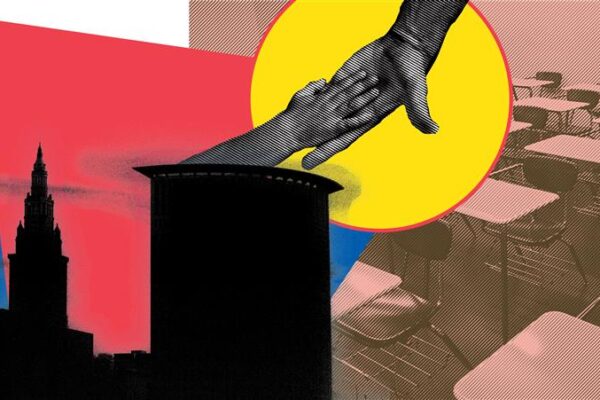The Greater CLE Youth Justice Collective - a coalition of youth justice advocates comprised of the ACLU of Ohio, the Schubert Center for Child Studies at Case Western Reserve University, and the Children’s Law Center – is concerned about a negative trend in the way various community stakeholders discuss court-involved youth in greater Cleveland. Over the past few months, we’ve seen inappropriate rants on Prosecutor O’Malley’s Facebook Page in which he cherry-picked cases involving youth and the sentences they’ve received and even disclosed private details about minors, fear-mongering statements from the Cleveland.com Editorial Board, and other local television segments condemning youth in Northeast Ohio.
This abrupt and alarming narrative shift from community leaders to highlight stories of court-involved youth without including any context or nuance of these kids’ situations is unhelpful at best, and regressive at worst. Our organizations strive to ensure safety by advocating for developmentally appropriate structures of accountability for our youth that are informed by best practices and centered on rehabilitation and restoration. As such, we are especially discouraged to observe this swing from the media after the groundbreaking Delinquent series was published earlier this spring in Cleveland.com (The Plain Dealer). This investigative journalism encouraged a reframing of the often complex challenges our kids experience and provided an empathetic lens into the lived realities of Cleveland’s youth. This coverage fostered an understanding of the historical neglect, poverty, trauma, exposure to violence at a young age, and lack of healing supports that plague many of our justice-involved youth. The reporting emphasized that restorative and healing interventions and effective diversion – along with strong mentorship programs – can lead to long term positive outcomes for our young people.
Fear-based narratives and allusions to the damaging super-predator myth that demonize our kids, many of whom are youth of color, erodes empathy for our young people by the public overall. It also undercuts public trust in the juvenile court and their important duty to ensure individualized justice that promotes the best interest of the youth – which actually aligns with our broader community’s desire for safety and wellness. . All of us have a stake in making Greater Cleveland safe – for our kids, not from our kids.
To use the mantle prescribed by Cleveland.com itself, “Our System, Our Kids” – we owe it to “Our Kids” to remember their stories and vulnerability and strive to build empathy and find rehabilitative solutions, not to sow further division in our communities.



